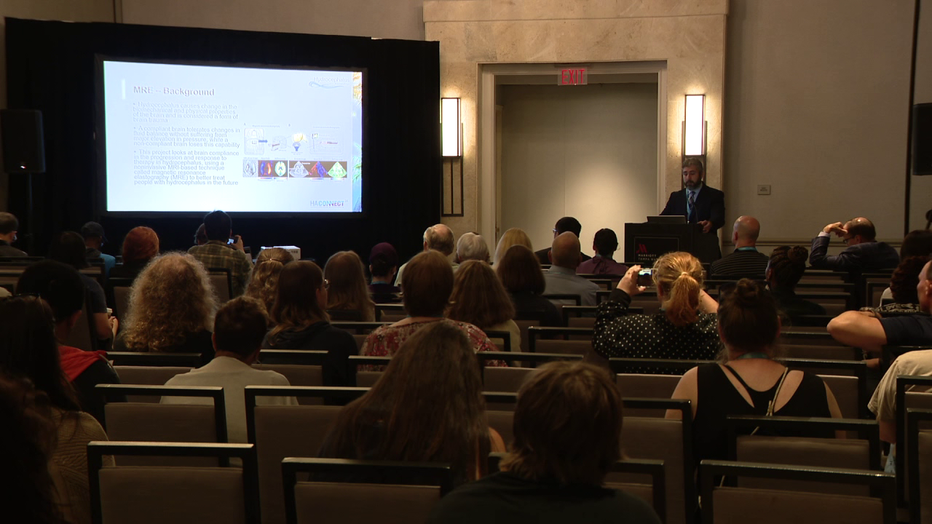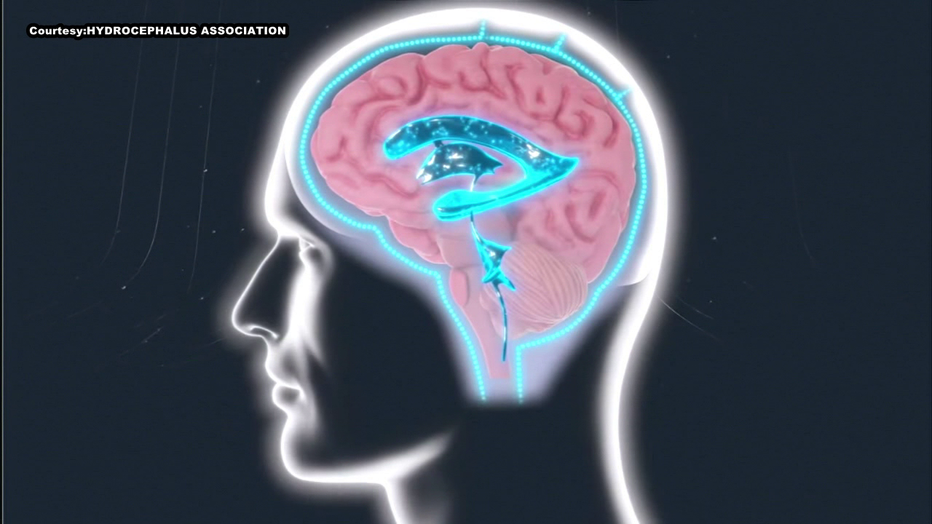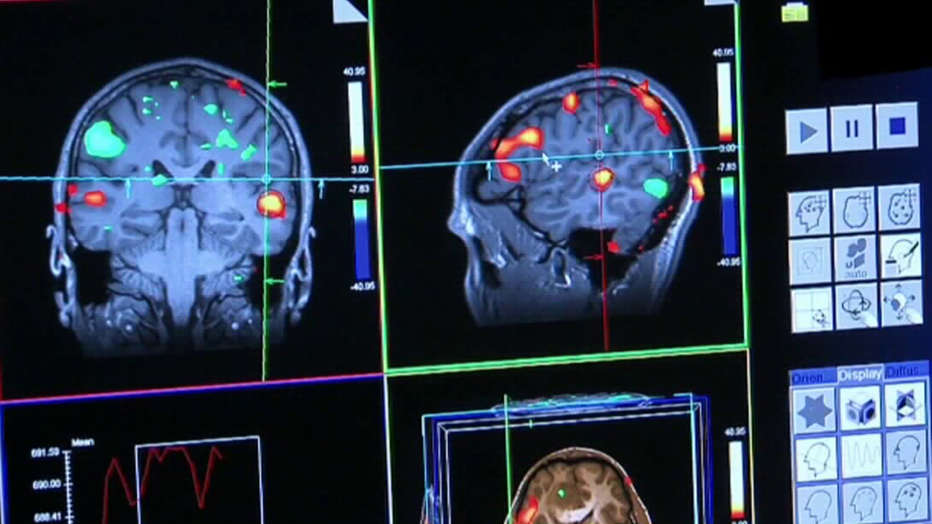Doctors learning how AI can detect hydrocephalus, other diseases at Tampa conference

Using AI to diagnose diseases more quickly
Doctors at a conference in Tampa are learning how artificial intelligence could help detect diseases, particularly hydrocephalus. It often comes with symptoms similar to Alzheimer’s or Parkinson’s diseases.
TAMPA, Fla. - Doctors from across the country gathered for a conference in downtown Tampa Friday to discuss how artificial intelligence (AI) could help them diagnose diseases, like hydrocephalus, faster.
Hydrocephalus is a neurological condition where fluid builds up in the brain. It can lead to developmental disabilities. Treatment is brain surgery to insert a shunt, or a tube that drains the fluid.
"I think AI is being applied to many things -- especially in healthcare for different diseases -- and definitely has significant potential in the diagnosis and treatment of hydrocephalus," Johns Hopkins University radiologist Dr. Harrison Bai said.

Bai is one of the speakers at the Hydrocephalus Association (HA) CONNECT National Conference on Hydrocephalus. The event is July 25-27 at the Tampa Marriott Water Street.
"What AI can do is give us a better idea of, give more certainty to a diagnosis," Bai said.
Normal pressure hydrocephalus (NPH) is common in adults 60 and older. According to HA, around 800,000 older Americans may be living with NPH, and more than 80% of cases go unrecognized or untreated. Causes of acquired hydrocephalus can include head injuries and brain tumors.

Meanwhile, one out of every 770 American babies will develop hydrocephalus, according to HA.
"I was diagnosed just by going to a pediatrician when I was younger, and they were measuring the size of my head," Maryland resident Jeffrey Chrismer, who is attending the conference in Tampa, said.
Both Chrismer and his wife, Amanda, have hydrocephalus and met at an HA CONNECT hydrocephalus conference years ago. They’ve both had multiple brain surgeries to revise their shunts, which can malfunction, fail, or become infected.
READ: Tracking the tropics: System may develop as it approaches the Caribbean Islands next week
"What's amazing is we've been able to overcome all the different obstacles that we've had and challenges from hydrocephalus, and we've still been able to live relatively normal lives," Chrismer said.
To diagnose this brain condition, doctors study MRIs and CT scans to analyze the amount of fluid in the brain.
"But it's a very tedious process that can take many hours for a person to do. We're using and teaching AI to be able to do it within minutes, so that we can get very accurate measurements of those fluid spaces so we can, in very detailed ways, monitor the changes over time," conference speaker Dr. Andrew Kobets, assistant professor of neurosurgery & pediatrics at The Albert Einstein College of Medicine, said.

Doctors say AI can be used to detect subtle differences in scans, which will help them differentiate hydrocephalus from Parkinson’s disease and Alzheimer’s disease, since all three share similar symptoms, like memory loss and bladder problems.
"I think the advances that they've been able to make and find and the things that they're still doing is amazing and can definitely lead to a healthy future and babies who do not have to go through some of the experiences that we've had to go through," Chrismer said.
The conference is held in collaboration with Tampa General Hospital and USF Health as sponsors.
SIGN UP: Click here to sign up for the FOX 13 daily newsletter
WATCH FOX 13 NEWS

